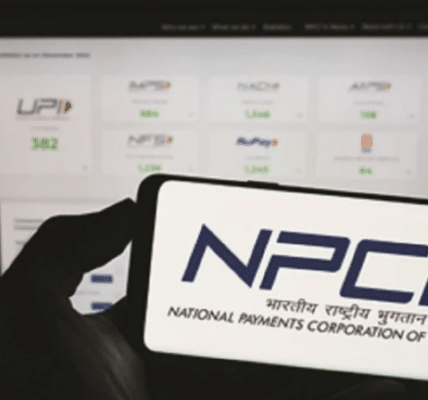
In response to a sharp decline in the value of its portfolio companies, SoftBank Group Corp. has announced a stock buyback program worth up to 1 trillion yen ($8.8 billion). The Tokyo-based tech conglomerate revealed the move on Monday, stating that it plans to repurchase up to 14.6% of its outstanding shares, with the buyback scheduled to run for a year. However, SoftBank’s founder and CEO, Masayoshi Son, noted that if the buyback isn’t completed within the year, it could be extended.
“I’m so excited, because I am a shareholder,” Son shared during an investor presentation following the earnings announcement. The decision marks a return to a familiar strategy after SoftBank executed an unprecedented 2.5 trillion yen stock buyback last year. That program helped the company recover from its pandemic-era low and more than tripled its valuation. But after the buyback program expired, SoftBank’s stock has slid by more than 40% from its peak in March.
A Response to Market Conditions
The stock buyback initiative comes as SoftBank faces significant pressure from declining portfolio valuations. The company’s Vision Fund unit, which made massive investments in tech startups, reported a record loss due to the downturn in the value of its public holdings. Notably, Beijing’s regulatory crackdown on tech companies has severely impacted SoftBank’s holdings in Alibaba Group, Didi Global Inc., and other Chinese startups, contributing to a sharp depreciation in their stock prices.
Son acknowledged the challenges at an investor briefing, commenting, “With a discount this wide, I thought, what would make shareholders happy? A buyback.” The move is expected to provide a boost to the stock price and improve investor sentiment, despite some analysts questioning the slower pace of this buyback compared to previous efforts.
Vision Fund Struggles with Losses
SoftBank’s Vision Fund has faced a tumultuous period, posting a loss of 825.1 billion yen in the second quarter due to the sharp decline in valuations of public companies like Didi and Coupang. Son expressed regret about the performance, stating, “The SoftBank Vision Fund performance is not something I’m proud of,” while flashing a slide of a snow-covered tundra, likening the situation to a blizzard.
Many of SoftBank’s Chinese portfolio companies have been particularly hard-hit, with Didi losing $6.1 billion in the last quarter and Full Truck Alliance Co. suffering a $1.2 billion loss. Other holdings, such as KE Holdings Inc., also saw significant drops in value. Once seen as promising IPOs, these companies have since underperformed, contributing to the fund’s mounting losses.
“It’s an incredibly poor track record,” said Kirk Boodry, an analyst at Redex Research. “They’ve been behind a lot of overpriced IPOs.”
Caution in China and the End of Stock Trading Program
The ongoing regulatory crackdown in China has prompted SoftBank to reconsider its investment strategy. Son has indicated that the company will proceed with caution in the region, reducing its exposure to Chinese startups, with plans to allocate only 20% of Vision Fund investments to China moving forward.
In addition, SoftBank is winding down its controversial stock and options trading program, SB Northstar, which had previously involved large stakes in companies like Amazon, Taiwan Semiconductor Manufacturing Co., and PayPal Holdings. This unit has proven costly, with Son personally losing around 150 billion yen in the program. Most of the controversial stakes have been liquidated, and SoftBank has now scaled back its highly liquid listed stocks from $13.6 billion to $5 billion.
Despite these setbacks, Son remains optimistic. “The loss hasn’t dissuaded me from continuing to make bets with my money,” he said, referring to his personal investments in Vision Fund 2 and SoftBank’s Latin American funds.
Looking Forward: A Mixed Outlook
While SoftBank’s stock buyback program may provide some short-term relief, the company’s long-term strategy remains uncertain. Its Vision Fund continues to struggle, particularly in China, and its controversial stock trading program is winding down. However, with Son’s personal investments in the company’s funds and a renewed focus on stock repurchases, SoftBank is positioning itself for a potential rebound.
As the company seeks to recover from its portfolio losses, its ability to weather the storm and refocus on its core investments will be crucial in shaping its future direction.





